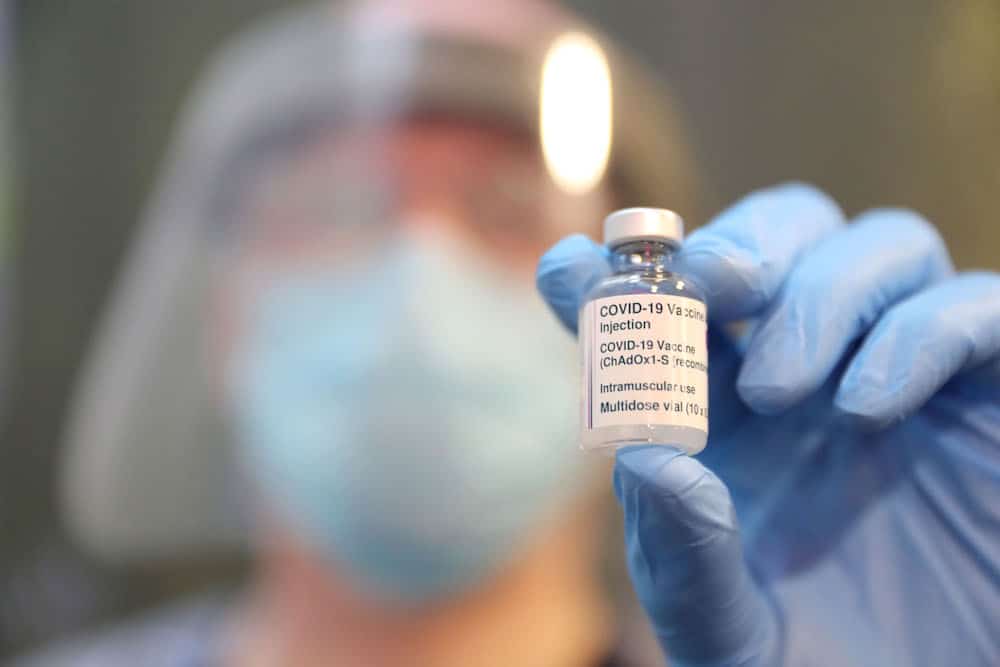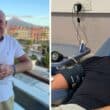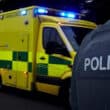
A Co Armagh GP has expressed her delight at the “enthusiasm” from the over 80s since the roll out of the Covid-19 vaccination.
Dr Alison Rodgers, of the Archway Surgery in Armagh city, who has been in practising since the 1980s, said the pandemic has seen the biggest change in they way she has worked in her professional lifetime.
She revealed to Armagh I that most of the over 80s who can come to the three Armagh surgeries, the Archway, Friary and Abbey Court, have now been offered the vaccine and there has been a greater than 95% uptake among this group.
“They have been delighted to be offered appointments and many have made great efforts to come for their vaccine,” said Dr Rodgers.
“It has been very moving to see elderly folk getting vaccinated, some of whom have not left their homes from last March.”
There are many questions which the GP surgery are being asked on a daily basis and Dr Rodgers has stated that there are several prominent ones.
The first is, when will I get called for my vaccine?
She explained: “The answer is as soon as we have vaccine for you. All three Armagh surgeries are pledging to get the vaccine ‘into arms’ as soon as we get it – please don’t phone to ask when you will be called.
“We WILL contact you and we need to keep the phone lines free for consulting about other things and to call people to come in for their vaccine.”
Another is those wanting to know when will I get my second dose?
“It is normally around 10 weeks after your first dose as directed by the Joint Committee on Vaccination and Immunistions – again it depends on supply,” said Dr Rodgers.
“We hope the maximum interval between the doses will be 12 weeks. There is some evidence that having a longer (10-12 weeks rather than four weeks) between the doses may lead to better immunity in the long term.”
As for those who have been wishing to make a face to face appointment, the doctor warned that pre-pandemic waiting room crowds would be “lethal”.
She said: “We have had to move to a ‘phone first’ system. Often problems can be managed safely over the phone, or occasionally we can employ video consulting software or ask you to send in photographs (of a rash, for example), but frequently we feel an examination is necessary.
“When we feel an examination is necessary we will arrange a time for you to attend the surgery. In fact the number of patient contacts is often greater than we would have had in a day this time last year.”
The vaccine rollout is one of the biggest logistical challenges any health department has ever faced but Dr Rodgers believes previous experience in vaccination will help GPs.
“We are used to delivering several thousand flu vaccines every autumn so we are well placed to scale that process up for the Covid-19 vaccine programme,” she said.
“Obviously there are differences. We will be aiming to deliver the Covid vaccine to greater numbers than get the flu vaccine and everyone will need two doses and with a new vaccine people need more information before the injection.”
Along with this is the need to wear full PPE and for social distancing measures to be maintained, which makes the process longer than a standard flu clinic.
Dr Rodgers added: “Our admin team have been very creative in coming up with solutions to the logistics of running the clinics and feedback from the patients has been positive.”
Alongside the Covid vaccine, due to a shortage in flu vaccinations, the Archway Surgery have also contacted over 1,000 50 to 64 year-old patients who have had that administered over the last two weeks.
Following on from the over 80s, Dr Rodgers said: “We hope to get the ‘go-ahead’ and the necessary vaccines to start the over 75-year-old patient cohort next week, and as greater quantities of the vaccine become available we will be vaccinating each group in turn.”
The biggest question on most people’s minds is when will the full vaccine programme be complete.
Dr Rodgers stated: “Apart from practice staff, we are only administering vaccine to people registered with us. We are hoping to offer vaccine to everyone over 65 years old plus the clinically vulnerable patients by the end of February as long as we get enough vaccine.
“This will require significant time and space and we ask patients to be patient – both in waiting for their invitation to attend for vaccine and in contacting us with all the other issues that folk contact GPs about.”
In addition to vaccinations the day-to-day work of a GP continues, along with Dr Rodgers and her staff having to do their share to help out at the Covid centre in Dungannon.
She stated: “We will do our best to continue to meet all urgent needs but appreciate our patients’ patience especially on days when we have vaccination clinics.”
As the vaccine has begun to roll out many of us have been hoping it is a path to ‘normality’, but predicting when this will come is difficult according to Dr Rodgers.
“’Normality’ will only be able to return gradually when we have two things – a significant proportion of the community vaccinated and low levels of Covid-19 illness and death,” she explained.
“We know that the vaccine reduces severe infection and death but are not yet certain if it prevents people from carrying and transmitting the infection to others.”
Dr Rodgers added that no vaccine is 100% protective, saying it was imperative that people continued to adhere to all government-issued restrictions, mask-wearing and social distancing until any relaxations are announced.
The doctor hoped that it would be possible to reduce restrictions gradually in the second part of the year.
During the first lockdown, support for those working on the frontline, especially in health care, was clear to see but over time this began to wane.
Dr Rodgers commented: “In the first wave there was a feeling across the community that we were ‘all in this together’.
“As time went on, understandably people became less tolerant of the measures required to be taken, particularly if they had no personal or family experience of being ill from Covid.”
Despite the vast majority of the public following the guidelines set out, Dr Rodger stated it was “distressing” to hear of breaches.
“I think some think they are prepared to take on a little risk for themselves but don’t realise that they put others at risk too – you can be infectious before you have any symptoms,” she said.
This has been a health crisis like no other, but Dr Rodgers believes that the “collective experience” of the team has been vital.
She added: “I’ve worked in lots of different situations since qualifying and I’m sure that has been an advantage, but doctors at different stages of their career bring different strengths and ideas.
“Skills and experience in a team are complementary. Working with a great and caring team of professionals, both clinical and administrative, has enabled us all to help each other through this.”
Just like many of us, those working in the GP surgery have found it hard to keep their spirits high throughout the pandemic.
Dr Rodgers confessed: “With respect to team morale the simple pleasure of occasional team lunches is greatly missed.
“Huddling together in a crowded coffee room for a few minutes catch up after a long surgery is not possible – even brief coffee breaks have to be socially distant, like everything else.
“However these are minor privations and we are aware that many people have had much more restricted social interaction and we are privileged to have had stimulating and worthwhile employment throughout this pandemic.”
Despite all of this, Dr Rodgers does believe that some ways of consulting developed over this period will continue into the future.
As for hopes for the future, she stated: “I am looking forward to lots of things! A Sunday lunch with family, hugging friends and family. Seeing more of my patients face to face, meeting some of the trainee doctors that I work with every Thursday – some of them I have only met by Zoom so far so maybe less Zoom!”
The Archway Surgery will be providing information and links to reliable sources that will answer the questions you may have on their Facebook page, where they will also provide updates on the vaccination programme.



